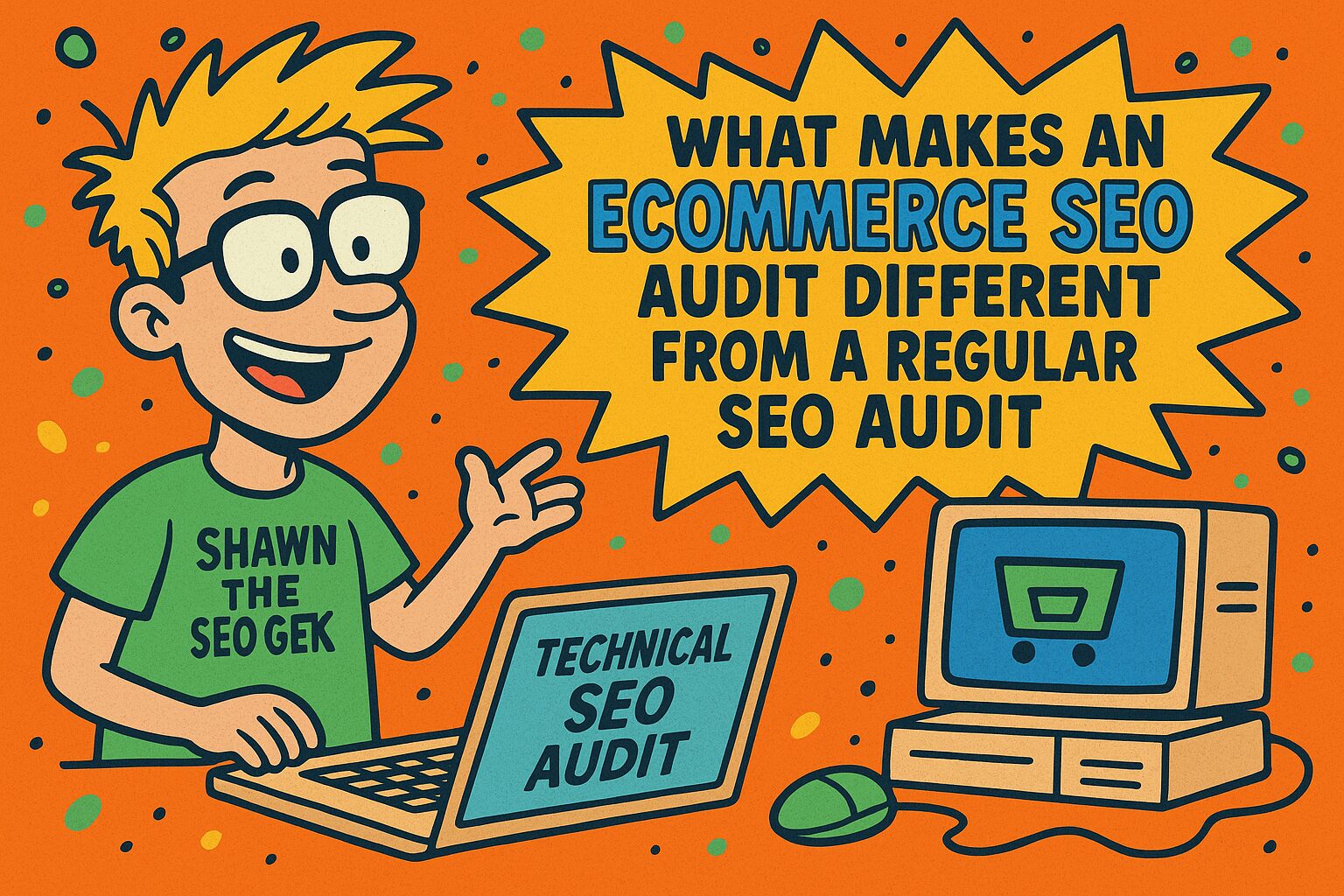When most businesses think about SEO audits, they picture the standard process: checking for broken links, optimizing on-page content, fixing crawl errors, and making sure the site loads quickly. That’s the essence of a technical SEO audit or general SEO site audit. But if you’re running an ecommerce store, your audit requires a different level of depth… and it’s not just about scale.
Over the years, I’ve worked with ecommerce brands of all sizes, and the difference between a regular SEO audit and an ecommerce SEO audit often determines whether your online store can actually compete in the digital marketplace. Let’s break down the nuances.
1. The Scale of the Site: Thousands of URLs vs. Dozens
A local service business might have 10–30 pages. An ecommerce website? Easily hundreds or thousands. Each product, category, and variation creates unique SEO considerations.
- Regular SEO audit: Focuses on site speed, metadata, headers, and keyword targeting for a relatively small set of pages.
- Ecommerce SEO audit: Looks at indexation issues across massive catalogs, making sure important products are crawlable while filtering out duplicate or thin pages that waste crawl budget.
2. Duplicate Content Challenges
With ecommerce sites, duplicate content is a constant battle. Similar product descriptions, faceted navigation (size, color, brand filters), and manufacturer-supplied copy can all cause problems.
- Regular SEO audit: Duplicate content typically happens by accident (two blog posts with similar topics or thin service pages).
- Ecommerce SEO audit: Must assess canonical tags, parameter handling in Google Search Console, and strategies for rewriting or enhancing product descriptions.
3. Structured Data and Rich Snippets
For ecommerce, schema markup isn’t just a “nice-to-have.” Product schema, review schema, price, and availability data all feed directly into how search engines present your listings.
- Regular SEO audit: Might add schema for local business, FAQ, or articles.
- Ecommerce SEO audit: Ensures every product page has structured data implemented correctly to qualify for rich results in Google.
4. Conversion-Centered Considerations
SEO isn’t just about rankings, it’s about revenue. An ecommerce audit needs to connect technical SEO with CRO (conversion rate optimization).
- Regular SEO audit: Focuses primarily on visibility.
- Ecommerce SEO audit: Reviews internal linking between category → product pages, mobile checkout experience, and whether organic traffic actually converts into sales.
5. Site Architecture and Internal Linking
How you structure your site matters more for ecommerce. If category and subcategory hierarchies aren’t logical, customers (and search engines) struggle.
- Regular SEO audit: Checks menus and internal linking on a smaller scale.
- Ecommerce SEO audit: Maps out category pages, collection pages, and navigation depth to ensure crawlability, user flow, and keyword targeting across the buying journey.
6. Page Speed and Core Web Vitals at Scale
Product pages often include multiple images, third-party scripts (reviews, chat, analytics), and dynamic elements.
- Regular SEO audit: Runs basic speed tests and suggests image compression.
- Ecommerce SEO audit: Balances high-quality visuals with load time, evaluates CDN usage, and ensures mobile shoppers aren’t slowed down.
7. Tracking and Analytics Nuances
Finally, ecommerce SEO audits go beyond just tracking traffic.
- Regular SEO audit: Measures organic clicks, impressions, and rankings.
- Ecommerce SEO audit: Connects Google Analytics (or GA4) with ecommerce tracking, making sure revenue attribution is accurate so you can tie SEO directly to ROI.
At the end of the day, a technical SEO audit lays the groundwork for any site. But for ecommerce, the stakes are higher. You’re dealing with thousands of pages, unique content challenges, structured data requirements, and the direct link between traffic and sales.
That’s why when I perform an ecommerce SEO audit as Shawn the SEO Geek, I approach it differently—bridging technical best practices with real-world ecommerce growth strategies.
Your takeaway: If you’re running an online store, don’t settle for a “regular” SEO audit. The nuances of ecommerce demand a specialized approach if you want to dominate in search engines and convert traffic into paying customers.










